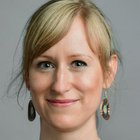
Evidence-based policy-making in uncertain times
Germany’s new Arctic guidelines: a case for knowledge diversification
Gehrke, Charlotte / Dorothea WehrmannThe Current Column (2024)
Bonn: German Institute of Development and Sustainability (IDOS), The Current Column of 14 October 2024
Bonn, 14 October 2024. To tackle the crisis of slow-moving political action and fulfil the promise of Germany’s new Arctic policy to strengthen research cooperation, more science diplomacy beyond the STEM-disciplines is needed.
The Arctic is ecologically and politically at a crossroads. Russia’s war in Ukraine has severely weakened Arctic governance and reoriented states’ Arctic agendas, with security issues receiving significantly more attention. This led many states with interests in the polar regions – including Germany – to revise their Arctic policies. Germany’s new Arctic policy guidelines will be introduced at the annual Arctic Circle Assembly (ACA), a key international gathering for Arctic expertise and political decisionmakers, starting this Thursday.
The new guidelines were published last month and relate explicitly to the context of the climate crisis and the Zeitenwende. Unlike Germany’s previous Arctic guidelines (2019), which highlighted that the Arctic was warming twice as fast as the rest of the world, the new guidelines (2024) start with Germany’s aim to safeguard “security and stability” and defend “the rule-based international order” in the Arctic. With scientific evidence showing the Arctic is now warming four times faster, the German government reiterates its commitment to climate agreements but clearly emphasises that the context for political cooperation and research to combat the climate crisis has significantly changed since February 2022.
Since its invasion of Ukraine, Russia, the largest member state of the Arctic Council (AC), has been isolated in the pre-eminent high-level intergovernmental forum promoting cooperation in the Arctic. Under these conditions, it is unclear whether and how the consensus-based Arctic Council will be able to operate politically going forward. For Germany, it is key to maintain its observer status in the Council, solidifying its stake in the Arctic as a non-Arctic state. As an observer, Germany is committed to supporting the AC’s working groups through research and expertise.
The conundrum that Germany’s new policy guidelines face is how research can be conducted collaboratively with other nations under the auspices of the AC despite the official research collaboration stop with Russian institutions. In search of solutions for continued cooperation and ways of ensuring the future of the Arctic Council, many have turned to the history of scientific diplomacy and exchange in the region.
Since 2022, the concept of “science diplomacy” has evolved from a comparatively young and small, though quickly growing, field of research and political practice into a buzzword, almost guaranteed to appear on the pages of virtually every Arctic conference program. While some researchers and political decisionmakers raise historical examples of Arctic science diplomacy between the USSR and other polar states towards the end of the Cold War in an appeal for track 2 diplomacy with Russia, others are reticent. In their exploration of Arctic futures beyond cooperation with the current Russian regime and in search of ways to solidify scientific engagement with non-Russian partners, conversations on Arctic science diplomacy revolve around the instrumentalisation of research.
This is also reflected in the new German Arctic policy guidelines’ call “… to maintain and expand free and responsible Arctic research as the basis for political action.” Scientific research is thus portrayed as a multifunctional tool allowing states to legitimise their role in Arctic politics and collaborate in order to facilitate research that may, in turn, provide valuable information about the changing climate and affected Arctic environments.
Yet, even Arctic scientists trusted with conducting this research argue that we already have the data needed to act on the dangers posed by the climate emergency and related environmental crises. Rather than focussing exclusively on the facilitation of research, science diplomacy on and beyond the Arctic should advance political cooperation to collectively address these dangers. To this end, greater consideration of research and knowledge systems outside and in addition to the STEM disciplines is needed to advise policy-making, particularly to develop efficient political pathways for climate change mitigation. Here, understanding the causes of political gridlock and advancing the co-creation of context-specific and inter-generational knowledges with Arctic Indigenous and local communities is key.
The message from the scientific community is clear: we need to move beyond gathering data on the effects of climate change in the Arctic regions to tackle the crisis of slow-moving political action. For that to happen, we must draw on diverse systems of knowledge and research, including Indigenous and local knowledge, social science, humanities, and STEM perspectives. To do so, we must open up exclusive knowledge, research, and political networks, allowing young people, marginalised groups, and other ‘outsiders’ entry into expert circles whose informality and “social trust” have been curated through long-cultivated relationships. If we fail to diversify the expertise basis on which our Arctic policies are built, we risk giving into quick-fix and technological determinist narratives that, at best, challenge and, at worst, endanger the lived realities of Arctic communities.
Charlotte Gehrke is a PhD Fellow at Nord University and a Fellow of the International Arctic Science Committee (IASC).
Dorothea Wehrmann is a senior researcher at IDOS in the research department on Inter- and Transnational Cooperation.
This text was produced as part of the research project “Sustainable Urban Development in the European Arctic (SUDEA): Towards Enhanced Transnational Cooperation in Remote Regions” (project no. 426674468), which is being funded by the German Research Foundation (DFG) and by the National Science Centre (NCN) in Poland (Agreement UMO - 2018/31/G/HS5/02448).

